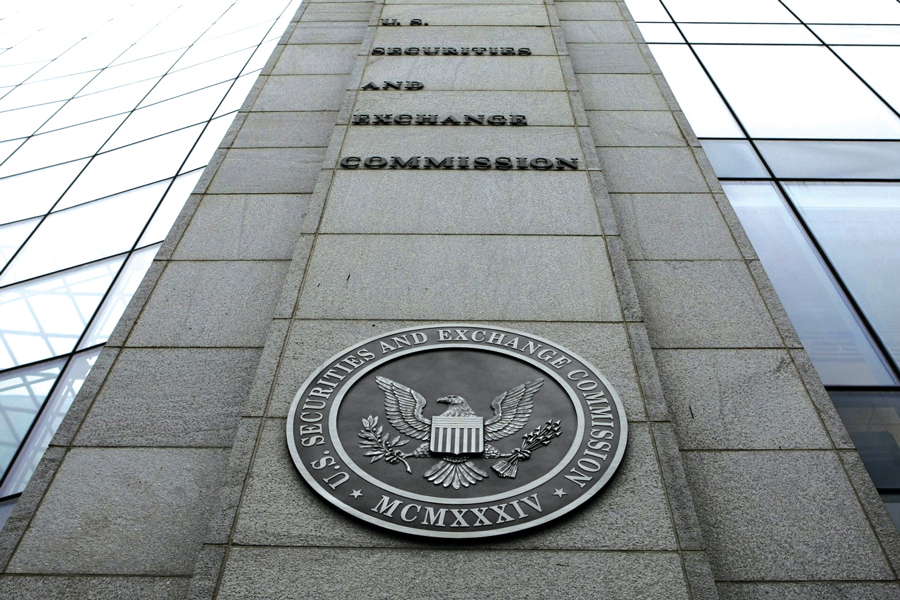

An array of financial industry and investment adviser trade groups is calling on the Securities and Exchange Commission to make electronic delivery of investment documents the default method of investor communication.
In a discussion paper released Tuesday, the Securities Industry and Financial Markets Association, the Investment Adviser Association, the Financial Services Institute, and a handful of others, recommend the agency change rules and guidance to enable wider digital transmission of documents.
Over the last two decades, the SEC has been allowing for increased e-delivery but the agency needs to go farther in light of the fact that the vast majority of Americans use the internet and most clients of investment firms already choose e-delivery for their investment paperwork. They argue e-delivery should be made automatic, while requiring opt-in for paper delivery.
“E-delivery with notifications via email, website or mobile application, or text messaging is faster, safer, and more timely than physical delivery through the postal service,” the paper states. “The time has come to allow firms to ‘flip the model’ of delivery, to utilize digital channels as the default means for communication, with protections to allow those clients who cannot (or decline to) accept electronic delivery to opt for postal mail delivery.”
The groups seek digital delivery of prospectuses, customer account information, sales confirmations and investment adviser brochures.
The trade associations’ paper adds momentum to e-delivery advocacy. Last week, BlackRock, Schwab and Fidelity made a similar pitch in a letter to the SEC.
Some investor advocates question the move to default electronic delivery. The Department of Labor recently issued a final rule allowing retirement plan information to be transmitted electronically by default.
Barbara Roper, director of investor protection at the Consumer Federation of America, said default paper delivery closely tracks individual investors’ preferences, with those who want electronic delivery opting in.
“To the extent that continues to be the case, I think the burden is on the industry to show that a change in the default is needed,” Roper wrote in an email.
The financial industry argues the time has come for blanket e-delivery, especially amid the disruptions caused by COVID-19.
“Not only is e-delivery faster, safer, and more timely than physical delivery, it also allows investors to review documents in more user-friendly formats, when and where they choose, leveraging modern communications technology to create deeper and more productive investor engagement,” SIFMA chief Kenneth E. Bentsen, Jr., said in a statement. “It’s a logical next step for the SEC to take, and even more so in the time of the COVID-19 pandemic.”
Roper said e-delivery likely would become the default investor communication method. How it is done is important.
“Relying on negative consent — essentially slipping this past investors and hoping they don’t notice — is not the way to go,” Roper wrote. She recommends “looking at the procedures that are required to get consent for electronic delivery and making sure they aren’t overly burdensome.”
The trade associations propose a one-year transition period during which investors who are receiving hard copy documents would be notified of coming changes.

While industry statistics pointing to a succession crisis can cause alarm, advisor-owners should be free to consider a middle path between staying solo and catching the surging wave of M&A.

New joint research by T. Rowe Price, MIT, and Stanford University finds more diverse asset allocations among older participants.

With its asset pipeline bursting past $13 billion, Farther is looking to build more momentum with three new managing directors.

A Department of Labor proposal to scrap a regulatory provision under ERISA could create uncertainty for fiduciaries, the trade association argues.

"We continue to feel confident about our ability to capture 90%," LPL CEO Rich Steinmeier told analysts during the firm's 2nd quarter earnings call.
Orion's Tom Wilson on delivering coordinated, high-touch service in a world where returns alone no longer set you apart.
Barely a decade old, registered index-linked annuities have quickly surged in popularity, thanks to their unique blend of protection and growth potential—an appealing option for investors looking to chart a steadier course through today's choppy market waters, says Myles Lambert, Brighthouse Financial.
